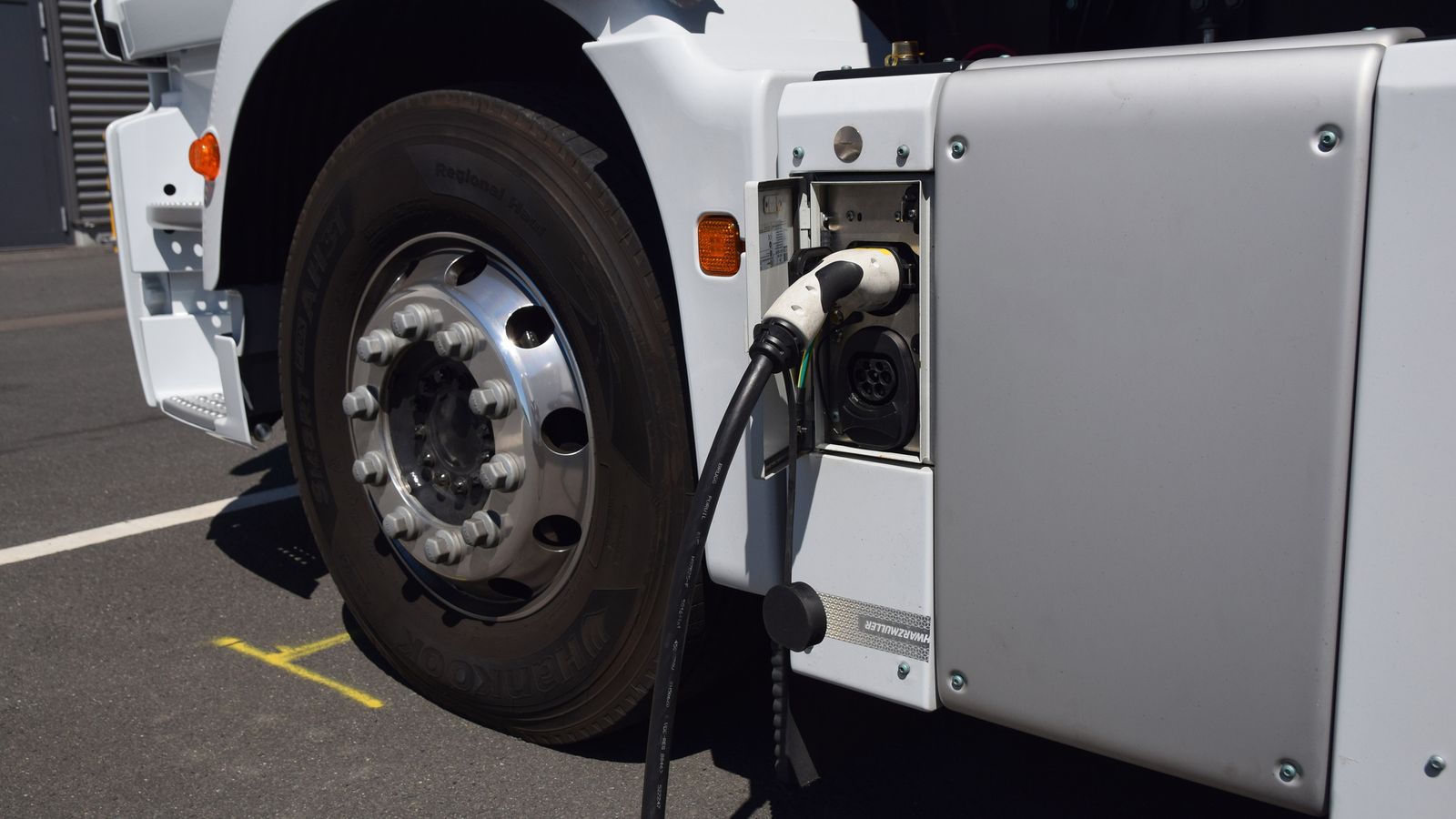Advanced battery plant in Oxfordshire to be opened later this year, creating up to 300 new jobs

Britain’s battery sector has been delivered some unexpected good news, after an Australian billionaire told Sky News he will be opening an advanced battery plant in Oxfordshire later this year, creating up to 300 new jobs.
Andrew Forrest, the founder of the Australian iron ore giant Fortescue, said he was expanding operations at WAE Technologies, the technical offshoot of the famous Formula 1 team, which he bought last year.
The new plant in Kidlington will work on batteries and fuel cells which could be used in heavy goods vehicles in the coming decades.
The news comes barely 24 hours after the collapse of Britishvolt, the most prominent independent firm hoping to build a so-called gigafactory, mass producing batteries for electric cars manufactured in the UK.
While the Williams plant has a different focus – on high density batteries for large trucks, such as those used by mining companies – and while its output will be considerably lower than the promised levels of Britishvolt, the news will nonetheless reassure those worried that Britain’s aspirations of developing an EV industry are doomed.
Speaking on the fringes of the World Economic Forum at Davos, Mr Forrest said: “We invested heavily in British technology, British knowhow and British work ethic last year. But then we’ve said: ‘Listen, it’s great you’ve got the most advanced, innovative prototype batteries in the world… but we’ve got to get into manufacturing’.
“So last year, we started building a large factory in Kidlington. We’ll open it in April. It will [create] hundreds and hundreds of new British jobs.
“And that’s only the start. I want to expand it from there and I want to take that technology to Australia, to North America. I want to really stop the British brain drain and bring the smartest British engineers… home.
“These are batteries which are going to be everywhere: in motorbikes, cars, trucks, even even our huge mining trucks in Australia, even trains.”
Advertisement
Read more:
The plant at Kidlington will produce up to 400MW/h per year of battery modules and fully assembled integrated power systems – so it cannot be considered a “gigafactory” (which produces more than a gigawatt-hour of cells each year).
Even so, these batteries are aimed at a different market, for higher density, higher performance batteries.
Williams Advanced Engineering hopes to build more of these manufacturing hubs around the world, following the blueprints of the facility in Oxfordshire. They also plan to build a new manufacturing and prototype test facility in the UK, which could create more new jobs.